HEALING TRAUMA, BUILDING WEALTH
You may not know the name, and that’s OK with Executive Director Chuck Jones and his team. The nonprofit group, Common Wealth Charlotte, isn’t trying to build a brand. They’re trying to help families become more financially stable.
“Low-income wage earners face many challenges,” said Jones. “They don’t make a lot and, in Charlotte, the cost of living is high. It’s easy to get into a bad financial situation, which further limits upward mobility.”
The reason you may not have heard of Common Wealth is that their financial education services are often embedded within other organizations whose names you do know. Common Wealth partners with about 60 area nonprofits – including Charlotte Rescue Mission, Habitat for Humanity, Latin American Coalition and more – as well as offering services directly to customers.
Typically, Common Wealth hasn’t been a first stop for emergency financial assistance. But it’s a good next step. “Relief organizations are necessary, but they don’t do what we do,” Jones said. “We help clients with upward mobility. We help people get to a new level of economic stability. And it’s a very effective model.”
Jones and his staff help clients navigate the financial system more confidently, resolve credit report issues, negotiate debt settlements. They offer workshops and one-on-one credit counseling with counselors certified by the National Association of Certified Credit Counselors (NACCC).
Acknowledging the role trauma plays in the cycle of poverty
Common Wealth’s whole approach is “trauma-informed,” Jones said. “Trauma affects the brain and decision-making. If you’re exposed to trauma from any source, including poverty, the healthy enzymes in your brain that help you make decisions decrease. Most low-income earners aren’t poor because they make bad decisions. They make the decisions they make because they’re poor.”
“No one wants to ask for money,” he points out. “It’s traumatic to even have to ask.”
When someone musters the courage to ask for help, Common Wealth offers education, counseling and loans instead of assistance. “We charge 0 to 1.5% interest,” Jones explained. “Our client has their immediate need – next month’s rent, for instance – taken care of, and they feel good that someone trusted them enough to make them a loan.”
It’s all designed to be a positive, wealth- and self-worth-building experience. And it’s based on science. “Research shows that if you replace a negative experience with a positive one, your brain will begin to heal itself,” Jones said.
Building assets
Most low-wage earners live paycheck to paycheck and never have the opportunity to build a cushion of savings. It’s not that they’re bad money managers. On the contrary, Jones said they’re usually very adept at making sure they have enough money to cover the basics – rent, groceries, utilities.
Many clients are accustomed to using pre-loaded debit cards. In fact, some are paid on prepaid debit cards.
“You can only do two things with a debit card: buy things or take out cash,” Jones said. “And fees are associated with both. We steer clients away from that and teach them to build assets, save for emergencies and for big expenses that come around each year, including back to school and Christmas.”
Common Wealth counselors work with clients on estimated spending analyses, household budgets, becoming credible borrowers and helping them get banked. Many low-wage earners don’t have the money to open a checking account; Common Wealth funds their initial deposit at Charlotte Metro Credit Union.
The impacts of a pandemic
IN JANUARY, COMMON WEALTH WAS SHARE CHARLOTTE’S #SPOTLIGHTONCLT NONPROFIT
COVID exposed even more economic disparity in the community than people were aware of. It also led Common Wealth to create an “income gap loan program.” Common Wealth, using funds granted from the COVID-19 Response Fund, started making 0% interest loans of up to $750 and allowing a six-month grace period and 12 months to repay.
As the borrower pays the loan back, that money goes to someone else who needs it. So, the first person who got a loan feels good that they’re helping someone else in need. It’s a revolving cycle of goodness.
“People – especially in the hospitality industry like housekeepers, restaurant workers – suddenly found themselves unemployed,” Jones said. “And worse, there were no jobs available. This income-gap loan program was designed as a bridge to help someone cover immediate needs like rent. Those first loans we made in April are starting to be paid back now that many are going back to work.”
And it’s all happening online. No one has been in Common Wealth’s office since March 16. Even loan disbursement is via Venmo or PayPal.
Before COVID, Common Wealth hosted 30 to 40 workshops a month in the community. Now, it’s done through Zoom. Free interactive workshops are held online twice a week.
“We knew a lot of people would find us as a result of the pandemic,” Jones said and illustrates how COVID has increased the need for their services: “Start at April 1, 2020. Now, go back six months to Nov. 1, 2019. During that period, we made 61 loans and counseled about 400 people. If you start at that same point – April 1 – and move ahead six months, we’ve made 549 loans and counseled 1,400 people.”
With COVID-19 seemingly on the rise again, Common Wealth expects already high demand for their services to increase. And, they’re ready to help.
Written by Page Leggett on October 22, 2020 for Charlotte is Creative
